
Andrzej Witold Wajda was a Polish film and theatre director. Recipient of an Honorary Oscar, the Palme d'Or, as well as Honorary Golden Lion and Honorary Golden Bear Awards, he was a prominent member of the "Polish Film School". He was known especially for his trilogy of war films consisting of A Generation (1955), Kanał (1957) and Ashes and Diamonds (1958).
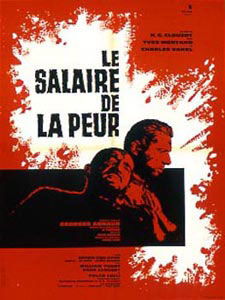
The Wages of Fear is a 1953 thriller film directed and co-written by Henri-Georges Clouzot, and starring Yves Montand, Charles Vanel, Peter van Eyck and Véra Clouzot. The film centers on a group of four down-their-luck European men who are hired by an American oil company to drive two trucks over mountain dirt roads, loaded with nitroglycerine needed to extinguish an oil well fire. It is adapted from a 1950 French novel by Georges Arnaud.

Sven Erik Alf Sjöberg was a Swedish theatre and film director. He won the Grand Prix du Festival at the Cannes Film Festival twice: in 1946 for Torment, and in 1951 for his film Miss Julie.
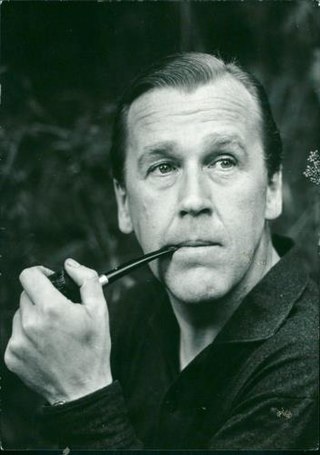
Arne Edvard Sucksdorff was a Swedish film director, considered one of cinema's greatest documentary filmmakers. He was particularly celebrated for his visually poetic and scenic nature documentaries. His works include Pojken i trädet and the Academy Award-winning Människor i Stad.

Welcome Mr. Marshall! is a 1953 Spanish comedy film directed by Luis García Berlanga, and considered one of the masterpieces of Spanish cinema. The film highlights the stereotypes held by both the Spanish and the Americans regarding the culture of the other, as well as displays social criticism of 1950s Francoist Spain. The film was entered into the 1953 Cannes Film Festival. It was the first full-length film Berlanga directed alone.

Cristi Puiu is a Romanian film director and screenwriter. With Anca Puiu and Alex Munteanu, in 2004 he founded a cinema production company, naming it Mandragora.

Terminal Station is a 1953 romantic drama film directed and produced by Vittorio De Sica and starring Jennifer Jones, Montgomery Clift, and Richard Beymer in his debut role. It tells the story of the love affair between a married American woman and an Italian intellectual. The title refers to the Roma Termini railway station in Rome, where the film takes place. The film was entered into the 1953 Cannes Film Festival.
Christian-Jaque was a French filmmaker. From 1954 to 1959, he was married to actress Martine Carol, who starred in several of his films, including Lucrèce Borgia (1953), Madame du Barry (1954), and Nana (1955).
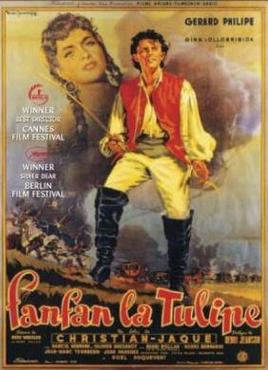
Fanfan la Tulipe is a 1952 French comedy adventure film directed by Christian-Jaque. It has also been categorized under swashbuckler films. The film starred Gérard Philipe and Gina Lollobrigida. The film was remade in 2003 with Penélope Cruz in Lollobrigida's role.

Ernst Gerhard Ludwig Jacobi-Scherbening, professionally called Ernst Jacobi, was a German actor. He was known for serious character roles, especially in the 1979 film The Tin Drum, as Hans in Germany, Pale Mother (1980), as Adolf Hitler in Hamsun (1996), and as the narrator in The White Ribbon (2009). He appeared in over 200 television productions and worked at the Burgtheater in Vienna from 1977 to 1987, and at the Schauspielhaus Zürich from 1987 to 1992. In 1975 he won the Berliner Kunstpreis for his portrayal of Alexander März in the television film Das Leben des schizophrenen Dichters Alexander März.
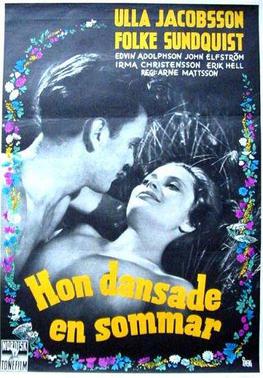
One Summer of Happiness is a 1951 Swedish film by director Arne Mattsson, based on the 1949 novel Sommardansen by Per Olof Ekström. It was the first Swedish film to win the Golden Bear at the Berlin International Film Festival. It was also nominated for the Palme d'Or at the 1952 Cannes Film Festival. Today, the film is mainly known for its nude scenes, which caused much controversy at the time and, together with Ingmar Bergman's Summer with Monika (1953), spread the image of Swedish "free love" around the world.

The 6th Cannes Film Festival was held from 15 to 29 April 1953. The Grand Prix of the Festival went to The Wages of Fear by Henri-Georges Clouzot. The festival opened with Horizons sans fin by Jean Dréville.
The Romanian New Wave is a genre of realist and often minimalist films made in Romania since the mid-aughts, starting with two award-winning shorts by two Romanian directors, namely Cristi Puiu's Cigarettes and Coffee, which won the Short Film Golden Bear at the 2004 Berlin International Film Festival, and Cătălin Mitulescu's Trafic, which won the Short Film Palme d'Or at the Cannes Film Festival later that same year.
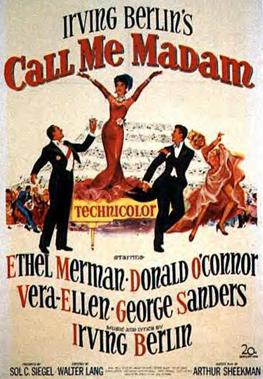
Call Me Madam is a 1953 American Technicolor musical film directed by Walter Lang, with songs by Irving Berlin, based on the 1950 stage musical of the same name.
Green Magic is a 1953 Italian documentary film directed by Gian Gaspare Napolitano.

The Great Adventure is a 1953 Swedish drama film directed by Arne Sucksdorff.

Jacques Baratier was a French film director and screenwriter. He directed 21 films. His film Goha won the Jury Prize at the 1958 Cannes Film Festival. His 1962 film La poupée was entered for the 12th Berlin International Film Festival.
Gian Gaspare Napolitano was an Italian journalist, screenwriter and film director.

Brillante Mendoza is a Filipino independent filmmaker. Mendoza is known one of the key members associated with the Philippine New Wave.

The 3rd annual Berlin International Film Festival was held from 18 to 28 June 1953.














